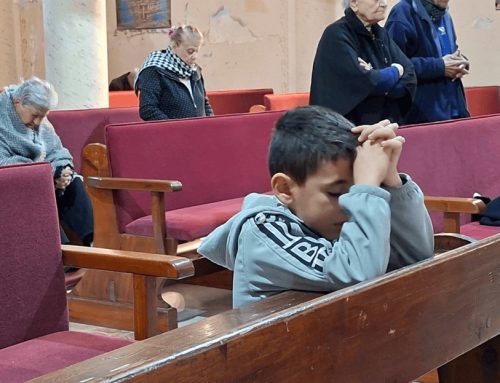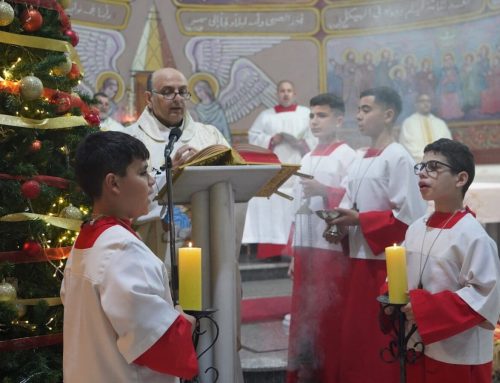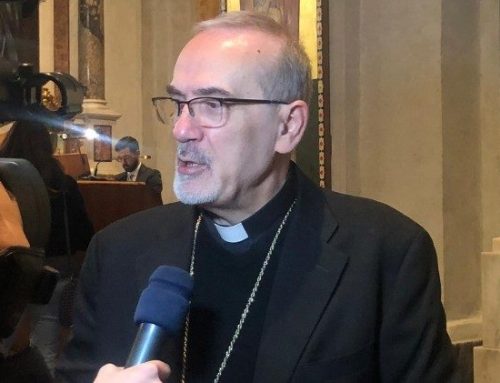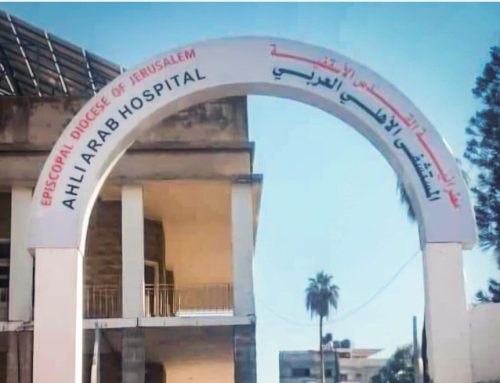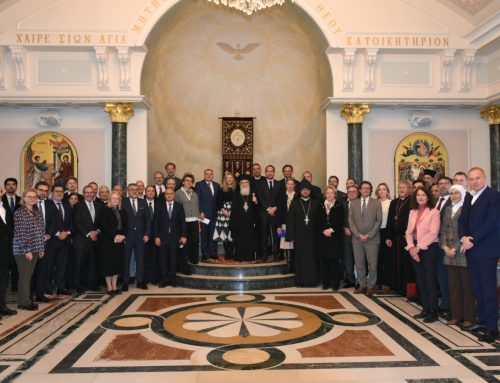 In the evening of Sunday July 20th, an air-launched missile struck the Franciscan monastery in Yacubiyah, a village located not far from the Turkish border in the Orontes Valley in north-west Syria. The building belonging to the Friars Minor of the Custody of the Holy Land was severely damaged. Fortunately, there were no deaths.
In the evening of Sunday July 20th, an air-launched missile struck the Franciscan monastery in Yacubiyah, a village located not far from the Turkish border in the Orontes Valley in north-west Syria. The building belonging to the Friars Minor of the Custody of the Holy Land was severely damaged. Fortunately, there were no deaths. (g.s./c.g.) – On Sunday evening, July 20th, an air-launched missile struck the Franciscan monastery in Yacubiyah, a village located not far from the Turkish border in the Orontes Valley in north-west Syria.
The building belonging to the Friars Minor of the Custody of the Holy Land was severely damaged. According to a notice from Fra Pizzaballa, Custos of the Holy Land, Fra Dhiya Azziz, who was working inside the monastery when the missile struck, reported that he was uninjured, other than a few blows to the head. “Fortunately, when the missile fell the friar was not in his room, which was completely destroyed,” stated Fra Pizzaballa, who then repeated the call to pray for peace in Syria and the Middle East.
In spite of the damages caused by the war in Syria, little acts of solidarity and fraternity among believers of different communities continue. There is no shortage of testimony, such as that of Feras Lufti, another Syrian friar of the Custody of the Holy Land, currently in Damascus. “For the last several weeks, Aleppo has been in grave crisis: there is almost no water,” reports Lufti. “People sometimes have to wait for hours to fill their containers with water for drinking or bathing. We are fortunate to have wells in our monasteries, and we can distribute the water to everyone, Christian and Muslim, without distinction. One day when we had finished drawing water, an elderly person came to ask for more. He was a Muslim. He came, in spite of the great effort expended due to his age, not for himself but for his neighbor, a Christian who was very ill.”
Father Feras cites another example. “Another time, here in the capital, I was in the home of a Christian lady who had died a little earlier. Her family and friends sent for me to pray with them. After the prayer, when I was about to leave, a man stopped me. From the way he expressed himself, I immediately understood he was a Muslim. He was very emotional and he cried. He told me that he had prayed for the soul of the departed with two suras (short chapters from the sacred text) from the Koran and asked me if God would accept his prayer for this good soul. I asked him, ‘Why did you pray for her?’ He replied that the deceased had taken care of his grandchildren and fed them. It turned out that this man’s daughters, widowed because of the war, were refugees in Damascus and had not been able to find a place to live except in the Christian Quarter. There they found a solidarity among women that they had not expected. I saw him later in the church, accompanied by his two daughters.”
By: Franciscan Foundation for the Holy Land
Source: Original Text in Italian – terrasanta.net


